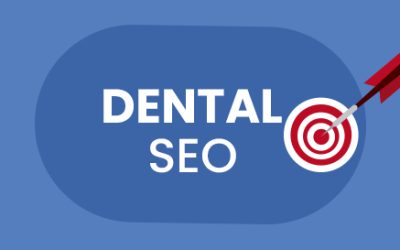Is SEO (search engine optimization) coming to an end? We’d answer no.As an impactful and much sought-after strategy that has remained robust over many years, SEO cannot disappear altogether, it can only evolve. Search engine optimization remains a valuable strategy for all kinds of businesses including healthcare because organic search is one of the most important marketing channels at present. Around 58 percent of web users go online looking for health information. So, it is crucial for hospitals and medical practices to show up online to edge out competitors and attract potential patients. A medical SEO campaign that targets your potential audience is a great way to rank high in search engine results pages. Proper keyword research, careful placement of title tags, Meta description, optimizing website layout and creating valuable and informative content are all SEO strategies that remain important for better ranking and for improving search traffic.

Here’s a look at why SEO will continue to be relevant.
- A MarketProfs study found that 43% of website traffic was driven by search rankings as of 2017.
- Compared to the pay-per-click model, organic SEO is 85% more likely to bring traffic to a website. Consumers attach great value for organic search results because a high position on Google ensures excellent quality and reliability.
- Google and other search engines such as Yahoo, Bing, and Baidu are the major information providers for people, with Google as the most preferred medium.
- Studies show that people research for the products or services they want before making a purchase, which makes the visibility of your website a very important consideration. As of January 2018, daily searches on Google stood at 3.5 billion that converts to 1.2 trillion searches a year on a worldwide level. Local searches, especially, are on the rise with people searching for local businesses near them.
- Organic search will increase with the proliferation of mobile devices, and websites must be optimized for mobile devices as well. Google rewards mobile-friendly or responsive websites, and users themselves prefer such sites.
- SEO complements other marketing strategies such as PPC campaigns, content marketing, and social media marketing bringing more value to your website.
Given the continuing relevance of search engine optimization, let us consider some healthcare SEO tips that healthcare entities may find useful.
8 SEO tips for Hospitals and Medical practices
- Create useful and original content: The time spent on creating relevant, quality content is well spent. Share the content with your targeted audience. Good content along with effective SEO strategies will make sure that your posts are shown high in a search results page.
- Choosing the right keywords: Keyword stuffing is no longer the trend now and may even be penalized by Google. A thorough keyword research is important for better ranking in search engines. Keyword research tools like Keyword Tool, Ubersuggest and SEMrush help to find keywords that people search online. Long-tail keywords and phrases tend to attract more visitors. Posting content with trending words and phrases helps to improve website visibility and authority.
- Content Management System (CMS) with SEO Plug-ins: CMS such as Word Press help to install SEO related plug-ins. The right SEO plug-ins can ensure that each piece of content you publish is fully optimized for all search engines. Use tags, Meta tags and appropriate keywords for each page and use the right CMS and SEO plug-ins. You can also consider obtaining the services of a professional healthcare website design company if you are unsure how to implement CMS.
- Share links to other content of yours in your posts: One method of boosting SEO is by sharing links to other posts you have on your website or blog with new updates. This helps to increase page views from visitors. Including links to content on your site with each new post creates a clear sitemap, which helps search engine bots to easily crawl your website.
- Select the right titles and headers: Correct grammar usage with appropriate punctuations is important when creating a new page and posting titles. Minimize the use of hyphens and create titles with most relevant topic in the content you share. The use of the right keywords in the title is also important to compare popularity and current search trends.
- Guest blogging: Allow physicians or other medical professionals to contribute guest posts on your blog as they are likely to share a link to your website through official website or social media handles. Similarly, sharing your posts on other professional pages or websites is also an effective technique that helps to improve the credibility of your website. This helps to boost SEO and ranking. The better the interaction from other websites, the higher your website will appear in the first page of search results.
- Social media: Having an active social media profile is important for medical professionals to survive in the competitive digital world. It helps to boost your website’s SEO; update your social media pages regularly to generate more followers. Cross post your updates using multiple social media platforms like Facebook, Instagram, and LinkedIn and choose the top three keywords from your medical niche to attract new followers. Social media is an ideal tool to boost your website and improve visibility in organic search results.
So, SEO Is Still Important
Google is constantly engaged in improving its algorithm and SEO has to evolve accordingly. Ignoring SEO can lead to a drop in top ranking spots and competitors are likely to use this opportunity for their betterment. So to do well online, SEO is an important criterion. Today, people use various digital devices such as mobiles, desktops, tablets etc and with advanced technology they have access to voice search that ensures a better user experience. Artificial intelligence and voice searches are already having an impact on SEO but will have a more significant impact in 2019 and beyond.
Central to any medical SEO strategy is understanding your audience. Flawless communication, proactive information, and reliability are all at the top of customer requirements. So, any SEO strategy must be built focused on these and around the strengths of your organization and the value you can bring your customers.




